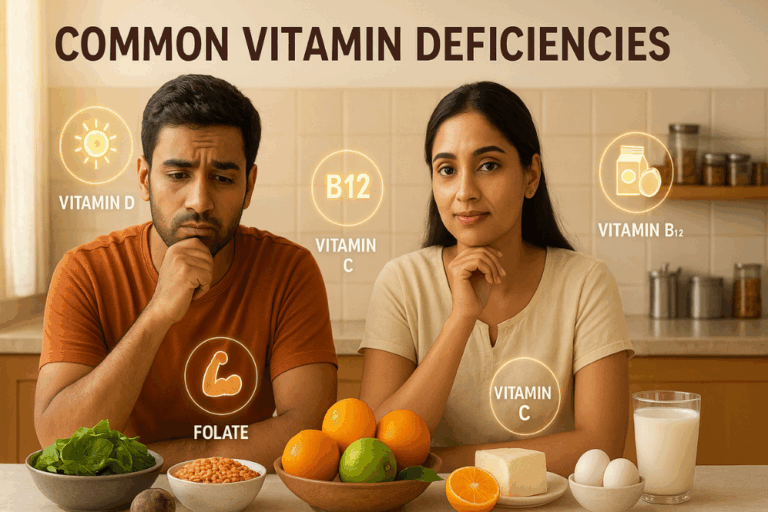-
Betson V
- November 11, 2025
Vitamins play a vital role in keeping our bodies healthy and functioning properly. They not only help boost immunity but also strengthen bones, improve vision, support brain health and keep our skin glowing. But many of us don’t get enough essential vitamins through our daily diet, leading to deficiencies that can affect overall well-being.
Common Vitamin Deficiencies
Some of the most common deficiencies include:
- Vitamin D: Known as the “sunshine vitamin.” It helps absorb calcium for strong bones. Lack of sunlight or a diet low in vitamin D can lead to weak bones and fatigue.
- Vitamin B12: Important for nerve function and red blood cell production. This deficiency can cause tiredness, memory issues or tingling in hands and feet, especially in vegetarians and older adults.
- Vitamin C: Supports immunity and skin health. This deficiency may cause frequent colds, gum problems or slow wound healing.
- Iron and Folate: These nutrients prevent anemia. Low levels can make you feel weak, dizzy or breathless.

Why Deficiencies Happen
Poor eating habits, skipping meals, excessive dieting or relying on processed foods can lead to low vitamin intake. Lifestyle factors like smoking, stress and lack of sunlight also play a role.
How to Get Enough Nutrients
The best way to prevent deficiencies is to eat a balanced diet rich in fruits, vegetables, whole grains, lean proteins and dairy. Include foods like leafy greens, nuts, eggs, milk, fish and citrus fruits in your meals. For those with specific dietary restrictions, supplements may help but it’s recommended you consult a doctor before you start taking any supplements. Vitamins may be tiny, but their impact on health is huge in the long run. So pay attention to your diet, listen to your body and ensure you’re fueling it with the necessary nutrients.
